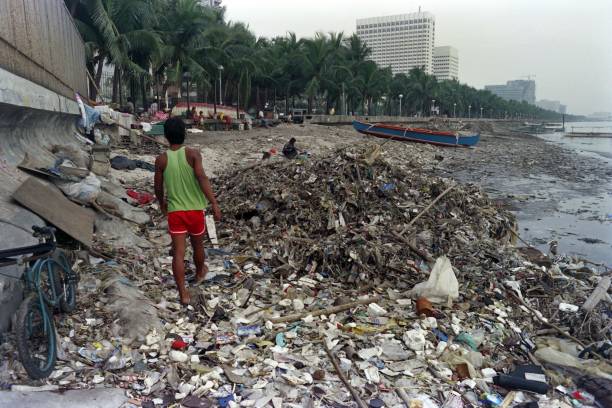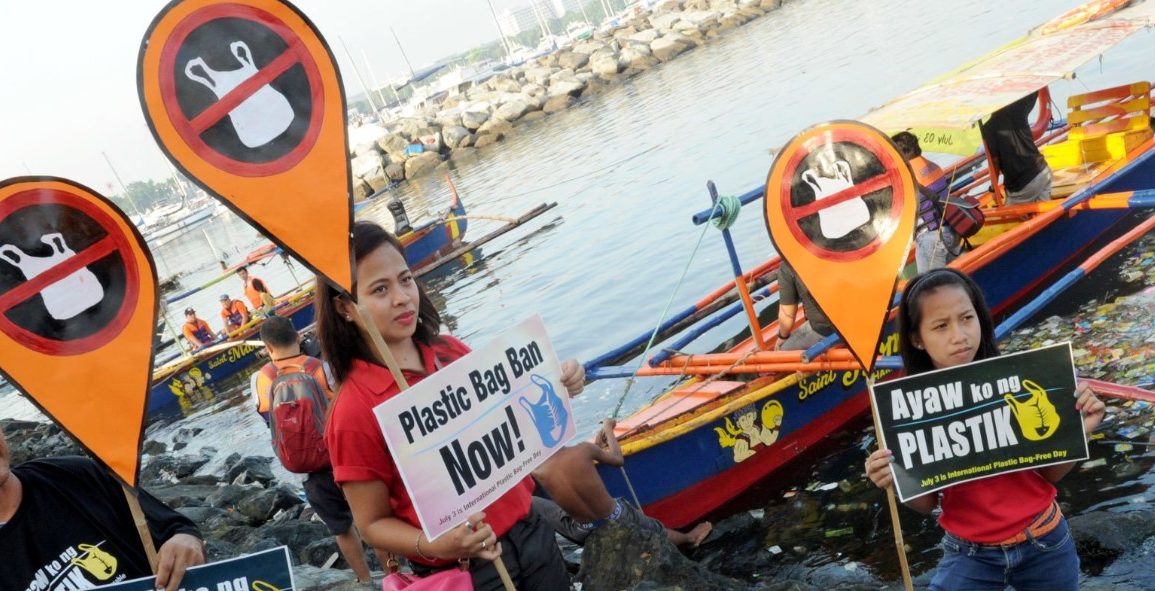As a leading contributor to ocean plastic, the Philippines is turning to legislative action to combat waste.
With last year’s implementation of the “Extended Producer Responsibility” (EPR) law, companies face accountability in managing plastic waste.
This statute, the first of its kind in Southeast Asia, requires large corporations to mitigate plastic pollution and imposes fines for non-compliance.
The World Bank reports that the Philippines generates about 1.7 million metric tons of post-consumer plastic annually, with over a third discarded on open land.
The EPR law sets ambitious targets to achieve “plastic neutrality,” initially mandating companies to offset 20% of their plastic packaging footprint, escalating to 80% by 2028.
Companies can meet these goals by outsourcing waste recovery to “producer responsibility organizations” or through plastic credits—certificates verifying that plastic has been removed and either recycled or burned for energy.

Early successes include visible clean-ups in low-income areas and initiatives by companies like Mondelez, which offsets its entire plastic footprint.
The program also aids waste collectors like Marita Blanco, a Manila resident, who earns income through plastic resale to waste-to-cash schemes, calling it “manna from heaven.”
However, challenges remain. Plastic credits, while effective, often involve incineration, raising concerns about long-term sustainability.
Critics argue that reducing plastic production is crucial, though high costs hinder companies from redesigning packaging.
Despite hurdles, Environment Undersecretary Jonas Leones emphasizes the EPR law’s importance for one of the world’s top marine plastic polluters.
Although immediate results are unlikely, the law represents a step towards sustainable waste management, pushing for gradual, crucial change.

